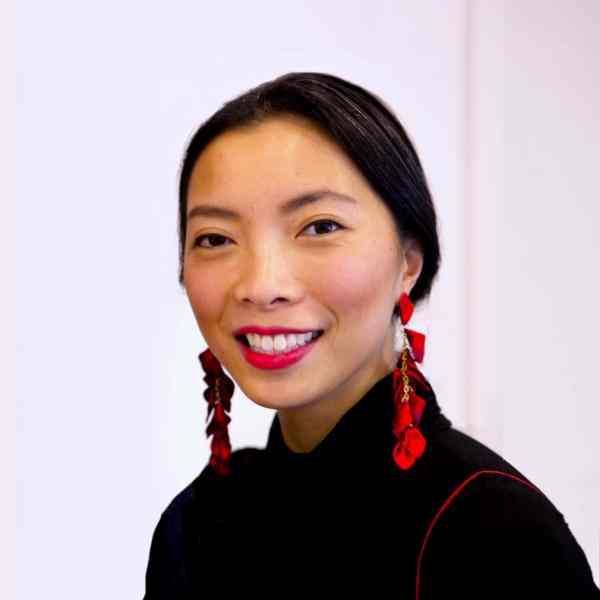TBD
After a stint away in political office and giving birth to two sons, I am back in the social change game with my next phase of work with Chinese couples and families. Looking back at my shark fin work, I realize the couples that were the most successful at going "fin free" at their wedding banquet, were couples that had their parents' support. Couples that fought with their parents about the decision to remove shark fin were not able to make "social change". After giving birth to children of my own and learning about essential tools like attachment theory, I've come to the insight that the way families relate to each other and how children are raised have the biggest impact on whether or not they are able to step into the role of becoming a social changemaker or making a social change in their own lives. Evidence on attachment reveal the impacts attachment has across an entire lifespan of a child into their adult years into the grave, for good and bad. Insecurely attached children are more likely to experience mental health struggles like depression and anxiety, have difficulties in relationships and with work. Families that have jarred dynamics are more likely to become estranged to from one another. Family estrangement is cited as one of the highest stressors of day-to-day living. I have a baby and a toddler and am just beginning to "return to work" on this front. I'm in the process of figuring out where I can be of most benefit in this next phase of my work. I'd be most grateful to hear your feedback and learn about what you're doing and paying attention to. If you had limited resources and had to chose one intervention point to strengthen/optimize family systems, where would you invest?
Introduction
Engaging young Chinese-Canadians in environmental conservation habits congruent with traditional values, Claudia Li is bringing together the worlds of cultural heritage and social change. Claudia is creating a new space for Chinese youth to become changemakers by allowing youth to engage in the environmental movement in a culturally comfortable way.
The New Idea
Claudia is facilitating the inclusion and active participation of young members of one of the world’s largest cultural populations to become significant influencers in the global dialogue on environmentally sustainable consumption practices. She is challenging environmentally harmful practices by influencing the consumption behaviors of the Chinese-Canadian diaspora community, bringing to light contradictions between traditional Chinese values and some modern-day cultural practices. For example, Claudia has leveraged the culturally relevant practice of shark fin soup consumption and juxtaposed it with the traditional value of zero waste food consumption as a tangible gateway topic to introduce members of the Chinese diaspora into the larger conversation of sustainable consumption.
Claudia’s new idea hinges on mobilizing a critical mass of Chinese-descendent youth, actively engaged in, and informed about environmental issues. She has identified and mapped the gaps in typical arguments and campaigns supporting environmental awareness and sustainability, but which greatly deter the involvement of Chinese diaspora community members. Claudia’s response was to build the high profile platforms, linguistic foundations, and culturally empathic resources necessary yet previously scarce, to enable individuals from the Chinese diaspora to feel confident in shifting cultural practices, while still remaining aligned with traditional values.
Claudia seeks to make it easy for young people from the Chinese diaspora in Canada to become active participants and influencers in the global dialogue on environmental sustainability. Ultimately, she is equipping young members of the Chinese diaspora community in Canada, of which she is a part, with the tools, knowledge, and networks needed to uncompromisingly define themselves as changemakers.
The Problem
A 2006 Canadian census revealed that Chinese-Canadians accounted for 24 percent of the visible minority population in Canada, the second largest diaspora population, translating to 3.9 percent of the population, or 1.2 million individuals. Despite physical presence, there is a low level of engagement and prominent visible representation of Chinese diaspora, especially youth, in environmental issues in Canada. Globally, individuals of Chinese descent are one of the largest ethnic groups, yet visual representation in the environmental movement is scarce, arguably a result of being one of the least engaged groups, despite a growing desire for change. The lack of engagement stems from a lack of deliberate bridges built between the environmental movement and the Chinese diaspora. There are very few resources, organizations, and public debates that specifically and strategically involve people of Chinese descent in environmental protection. Compounding the issue are deep-seeded cultural barriers in current messaging. Resources and campaigns of the environmental movement are often viewed as highly critical and antagonistic of cultural practices predominately undertaken by the Chinese diaspora community.
For example, in Canada the issue of shark fin consumption—of which, the Canadian-Chinese diaspora are the main and largest consumers—has been a hot topic since 1994 when the federal government banned shark fining in Canadian waters, in part because of is detrimental effects on oceanic sustainability. Since then, municipalities across the country have systematically introduced bans on shark fin products to further deter the practice of shark fining outside of Canada. However, these measures have been met with widespread condemnation and in many cases been overturned in court. Criticisms leading to condemnation included perceptions of discrimination from the Chinese diaspora who saw the measures as an attempt to vilify Chinese people in the media and mainstream Canada for their cultural traditions.
Current environmental strategies, such as measures to reduce shark fining, are failing to change the mainstream conversation, from “why this is wrong” to “why there is alignment between conservation and values” from the context of Chinese traditions, and thus failing to effect consumption habits.
Additionally, the linguistic tools and material resources necessary to inform the Chinese diaspora and facilitate conversation within a cultural context are scarce. Globally, there is no support system or network enabling Chinese youth to take action for environmental conservation, connect with one another, and have the tools to create change in their own spheres of influence. Even within the Chinese diaspora, language barriers exist that prevent the translation of commonly used environmental terms from English into Mandarin, Cantonese and other languages spoken by individuals of Chinese decent.
The Strategy
Claudia is using cultural milestones and tradition as access points to engage individuals within the Chinese diaspora in open, meaningful, and action-oriented conversations surrounding the issue of environmental conservation. Her strategy includes equipping young members of the Chinese-Canadian community with the knowledge and platform to become significant influencers within their own communities around the issue of environmental sustainability. Claudia is also building the culturally specific tools and resources needed to facilitate youth-led dialogue and active public participation; and as a young Chinese-Canadian, leading by example. Claudia’s multilayered strategy is also prepping traditional environmental campaigns and members of the non-Chinese community in Canada, to understand more culturally inclusive approaches toward environmental conservation.
Claudia’s flagship program, Shark Truth, was founded in 2009. Through this, she is engaging young adults from the Chinese diaspora to learn more about the practice of shark fining while challenging them to examine their own consumption practices in comparison with their core cultural values. Claudia understands that misinformation is often the first significant barrier within her community, and uses her wedding contests as a platform to correct this. She specifically targets young engaged couples from the Chinese community, attracting them through wedding contests with prizes that include free honeymoon packages. Claudia leverages her entrepreneurial prowess to secure in-kind donations of relatively expensive destination-vacation packages, and then uses these donations to captivate young couples within her community to learn more about consumption habits and more specifically about shark fining. Once couples learn about shark fining, they are encouraged to make public commitments to adopt more sustainable consumption practices, starting with their upcoming nuptials. It is here that the young Chinese-Canadians take their first action-oriented pledge to not serve shark fin soup at their weddings. These public pledges are seen as significant commitments within the Chinese community, as shark fin soup is considered a delicacy, portraying a sense of high social status and prestige, particularly at weddings. Claudia sees the act of not serving soup at a wedding as a natural conversation starter within the Chinese community.
Pledging couples are then equipped with conversational tools, education, and distribution materials to discuss the topic of shark fining and sustainability with their wedding guests using culturally relevant terms, concepts, and language. Claudia strategically sets these conversations during a time of celebration to allow for cross-generational dialogue between families and friends in a positive and respectful atmosphere. Claudia also knows that setting a controversial topic like shark fining within a happy and joyous timeframe counteracts tensions and rapidly expands her audience from two individuals, to several hundred per wedding. In place of each bowl of shark fin soup, guests are instead provided with culturally relevant materials on shark fining. The materials spark dialogue at the table, additionally encouraged by the wedding couple, who take a brief moment at their reception to speak to the materials and why they choose to not serve shark fin soup. Wedding guests leave with the knowledge and skill set needed to reexamine their own practices, make their own personal pledges to deter the practice of shark fining, and discuss other issues surrounding environmental conservation and sustainability. In many instances this is the only time that elder generations of the Chinese diaspora are exposed to the facts about shark fining in a manner that does not feel like a negative critique of their culture. Elders are respectfully challenged by their younger family members to rationalize the practice; in particular, why shark fining contradicts traditional core values of preservation and waste reduction; values that are often passed down through generations.
Claudia sees Shark Truth as a gateway to deeper conversations about environmental sustainability and consumption practices within the Chinese diaspora community. Through Hua Foundation established in early 2013, Claudia is bringing together the worlds of cultural heritage, social change, and environmental sustainability. Relaunching Shark Truth as a society, she plans to open source her model to scale its reach among the 1.2 million Chinese-Canadians, as well as other Chinese diaspora communities around the world. Claudia has already successfully piloted an open source version of Shark Truth with organizations in Hong Kong, effectively diverting 20,000 bowls of shark fin soup, which actually translates to thousands of individuals directly impacted by Claudia’s culturally tailored messaging, and ultimately saving 2,000 sharks. In Canada, since Shark Truth first launched, more than 40,000 bowls of shark fin soup have been diverted; translating to over 10,000 members of the Chinese diaspora community being directly impacted using Claudia’s model and 4,000 sharks saved. Hua Foundation now acts as Claudia’s main platform, under which she will continue to expand on intergenerational and intercultural dialogue as a way to inspire all participants to think about their cultural identity in relation to food and consumption practices that affect the environment. Claudia is not trying to change her culture to adopt environmental issues; rather she is changing the messaging of environmental issues so that it can be adopted by her culture.
Additionally, Claudia is addressing the linguistic and visual barriers that currently prevent deep and meaningful discussion of conservation and sustainability. For example, direct translations of common English terms used to discuss environmental issues (such as “sustainability”) are not always readily available in Mandarin and Cantonese, nor are definitions of these translations universally agreed upon. Claudia combats this challenge by mobilizing and enlisting the expertise of an international network of media specialists, journalists, academics, and environmentalists of Chinese decent, or with an understanding of Chinese linguistics, to design the vocabulary used in dissemination materials for Shark Truth Society and Hua Foundation. The name Hua Foundation was specifically chosen to further encourage linguistic normalcy among the ethno-Chinese community in Canada with the term “Hua” having meaning and translation to both “ethnic Chinese” and “change.” Claudia also carefully considers the packaging, resources, and materials she uses, often recreating traditional environmental dissemination materials in order to engage her community. Packages received by wedding guests use culturally relevant colors such as red and gold as opposed to green, choosing instead to mimic traditional envelops received during Chinese New Year. Ultimately, Claudia envisions establishing these modernized terms and products as universally utilized vocabulary and resources in the discussion of conservation and sustainability among the global Chinese diaspora.
Claudia’s overall strategy also engages both mainstream and Asian specific media, paying special attention to messaging and approach. She embeds popular Chinese proverbs into her discussions with Chinese media as a way for older generations to understand and welcome her work. When speaking to media that has a typically mainstream and much younger audience, she uses messages about cultural pride and through example shows that it is possible to respect culture and contribute to protecting the environment. Claudia has high visibility across Chinese media in Canada and is gaining rapid traction in regional and national English language media as well. After giving at least two interviews per week to broadcast and print media in Mandarin, Cantonese, and English over the last two years, Claudia recently succeeded to secure broader reach of her messaging with airtime on Canada’s national radio broadcasting cooperation in two separate interviews. Her diligence has meant that her tailored messaging has reached tens of thousands of Canadians nationally. Claudia also leverages a robust social media presence to continue to connect with the youth of her community, with thousands of followers of Shark Truth on both Twitter and Facebook. Claudia’s social media momentum allows her to create online networks for youth to continue to discuss environmental conservation within a culturally relevant context, while also helping them to expand their conversations outside of their immediate friends and family.
Claudia is now working to establish Hua Foundation as a nationally recognized knowledge source for best practices on environmental issues within the Chinese diaspora community. She is creating a process roadmap that will enable not only individuals of Chinese decent, but any cultural demographic to build the knowledge, tools, and network to create their own commitments and action oriented dialogue within a culturally relevant context.
The Person
Claudia grew up in Vancouver, Canada and is part of a large family, many of whom immigrated to Canada from Hong Kong. Her mother was an activist against the Chinese government as a youth. Claudia spent much of her childhood being cared for by her grandmother, as her parents worked to establish a life in Canada. Her grandmother taught her about family values, and Claudia particularly remembers one conversation after being teased by classmates as a young girl. Claudia was teased when she brought chicken feet to school in her lunch, not realizing until that moment that eating chicken feet was considered “weird” by her classmates. She remembers her grandmother teaching her that not using the entire animal would be wasteful and that her culture found many uses for all parts of any animal.
As an adolescent, Claudia struggled to discuss social issues—such as racism and discrimination—with adult members of her family, even though her family was exposed to discrimination on a regular basis. This frustration led in part to Claudia’s struggle to find a sense of identity and direction in high school. In her words, socializing with “bad” crowds in high school taught Claudia to have a deep sense of empathy.
Claudia pursed a business degree at university and launched several branding and marketing startups. She had her epiphany moment after the passing of her grandmother coincided with watching a film about shark finning during her final year of university. Claudia found the practice to be in direct contradiction of the teachings of her grandmother and the core values that she had been instilled with growing up. She began to reexamine and seek out the roots of this contradiction while educating her peers about the shark finning, leading to the creation of Shark Truth.




